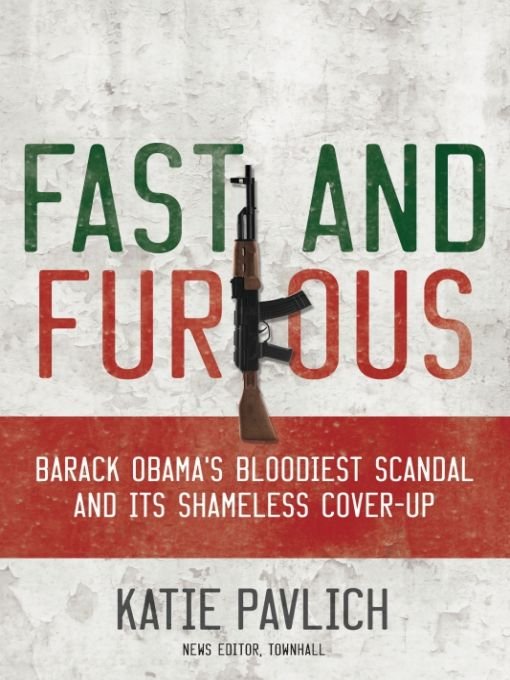Table of Contents
To those who have the courage to stand for truth.
To my parents for teaching me how to take on a challenge.
INTRODUCTION
by ATF Special Agent Jay Dobyns
When it became known that the weapons found at the ambush murder scene of United States Border Patrol Agent Brian Terry had willingly been allowed to pass through the hands of my agency during Operation Fast and Furious, all of my peers were in shock and disbelief. I wasnt.
In the years leading up to the tragedy in Peck Canyon, Arizonajust a few miles down the road from where I grew upI had become a first-hand witness to the decay of the federal law enforcement agency I love and had dedicated my entire adult life to serving: the United States Department of Justices Bureau of Alcohol, Tobacco, Firearms and Explosives.
When I became an ATF agent twenty-five years ago, I was hired on to an agency administered by hard men with hard-earned law enforcement experience. Many ATF managers had been trained in the responsibilities of policing in prior careers as local patrol officers and detectives.
ATF agents brought with them a real-life understanding of what it meant to be a cophow to run investigations and handle informants, all the elements of cops and robbers. As they moved up the ranks, they carried themselves with enormous self-esteem and confidence, having cut their teeth as real policemen well before becoming federal agents. They were full of pride that they had earned their stripes by getting in the weeds as investigators. They were intelligent and experienced lawmen who eventually rose to positions of influence in ATF.
As ATF managers, they were fearless men who knew what it felt like to have a criminal point a gun in their face. They had chased drug dealers down alleys, wrestling them to the ground. They had left wives and babies behind at home, while diligently spending endless days and nights on stakeouts with nothing more to show for it than a backseat full of fast food wrappers. They had kicked in doors as point men on search warrants, unsure of what waited for them on the other side. They grew beards and bought guns and bombs undercover from societys most dangerous felons. They were policemen and law enforcement officers first and foremost, executive bureaucrats a distant second.
These are the people who once directed ATF. Were they perfect? Of course not. Did they make mistakes? You bet they did. But they called the shots and were not afraid to make decisions. They didnt feel they had to run to a government attorney to tell them what was, or was not, the right thing to do. They didnt conduct secret, hidden, surreptitious programs, because they didnt have to. Our mission was clear and pure and they demanded we hold to it.
In the rookie agents they interviewed and hired, the old dogs looked for and expected a standard of performance and courage equal to their own. There was a sense of mentorship. They cared about their people. They were demanding of them, but with a sense of compassion for new agents trying to learn and make their way.
ATF agents were street cops with gold badges. We played hard but worked harder. We would join forces with our federal, state, and local partners and never care about who claimed the stats. We were just churnin and burnin to put the bad guys behind bars.
Its not entirely clear when or why things changed, but it is perfectly clear that they did; every veteran ATF agent knows it happened. Some people claim it began after ATFs raid of the Branch Davidian compound in Waco, Texas, in 1993. Some say it was when government was realigned and ATF was moved from the Treasury Department to the Department of Justice in 2003. Either way, the hardness of the ATF began to dissolve and was replaced by a more intellectual, and deceptive, view of how we investigate crime.
The old bosses who stuffed worn-out six-shot Smith and Wesson revolvers in the back waistband of their Sears and Roebuck suits were being replaced by bosses with well-polished Sig Sauers and slick monogrammed shirts with cuff-links, who were very careful not to let any gun oil get on their Armani jackets. Bosses who wore jeans and cowboy boots to work were being pushed out by newcomers with Dockers and tasseled loafers.
The mentality of the agency shifted from down-and-dirty everyday police work pursuing criminals to a newer, cleaner version where statistics and appearance reigned supreme. While we once chased after felons with guns and scraped our knees doing it, we were now encouraged to sit behind computer screens and electronically investigate syndicates.
The old bosses who had spent a dozen years on the street perfecting the craft of being ATF agents were supplanted by two- and three-year wunderkinds. Street knowledge was no longer important; the agents who got promoted were the ones who wore suits and ties rather than street work clothes. ATF agents were routinely promoted into management without any experience of slapping handcuffs on a suspect, writing an affidavit for a search warrant, or testifying in a criminal court. New administrators were chosen not on the basis of experience and performance in the field, but on test scores, and many chose to sit and study for tests and get promoted rather than do the traditional down-and-dirty work of an old-style ATF agent.
You get a reputation as a cop. Failing on the street is devastating. It creates danger for the officer and risk to his partners. When it became impossible for some ATF agents to cut it on the street, they took the early up option, worked on getting good test scores, and were promoted. Without real street experience, many became the equivalent of third grade teachers with gunsthey took attendance and graded reports with no real understanding what an agent does and how he or she does it.
Some of those chosen began to climb the governments corporate ladder. They nodded approval to the bad ideas of those above them for fear of being knocked off their personal ascent. They took care of each other and defended or ignored failed leadership because, after all, I could be next.
Ultimately some of the yes men with empty character and empty experience landed in positions of significant influence. They told agents how to do their jobseven if they were often failed street agents themselves. As supervisors, they looked down on field agents and were unwilling to listen to questions, take advice, or hear complaints from anyone ranked below them. The common response from executives to questions or complaints: You dont understand the big picture. Now that I am an executive and you are a mere street hump I am right and you are wrong. The attitude was, My title is more important than yours, therefore I know more that you.
The ATF became a series of micro-agencies and branches where Special Agents in Charge (SACs) built personal law enforcement empires in their divisions, making their own rules and disregarding law, policy, and many times, common sense. That style of management became rampant, and once that tiger was out of the cage, none of the new cat-tamer pseudo directors could figure out how to get it back in.
The ATF was viewed internally as a law enforcement Titanic: no matter what happened, the leaders felt their ship was unsinkable. Just weather the storms and well be fine. A series of short-term directors and even more prevalent temporary Acting Directors were imported to captain the ship. Then like the









